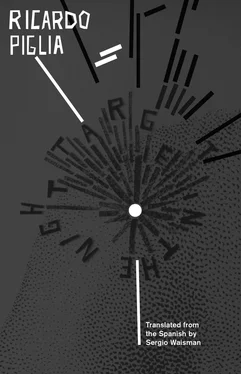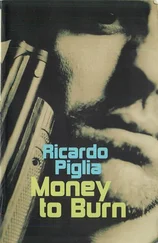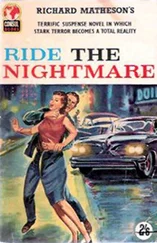Sometimes, in his dreams, he felt that a certain suprapersonal force was interfering in an active, constructive fashion, as if it were following a secret design. This was why he’d been able to build, in recent months, the objects of his thoughts as realities, and not just as concepts. To produce what he thought directly, thinking not just ideas, but real objects.
For example, a few objects that he’d designed and built in the last few months. There was nothing else like them, no previous models. The precise production of the objects of his thoughts that did not exist before being thought up. The exact opposite of the countryside, where everything exists naturally, where products are not products but a natural replica of previous objects, reproduced in the same manner, time and time again. 30A field of wheat is a field of wheat. There’s nothing to do, except plough a little, pray for rain, or for the rain to stay away — the earth takes care of everything else. Same thing with the cows: they walk around, graze, sometimes they need to be dewormed, have someone make an incision if they get a grass obstruction, herd them to the corral. That’s all. Luca considered machines, instead, to be very delicate instruments. The machines were there to assist in bringing about new and unexpected objects, each more complex than the one before. He thought he could find, in his dreams, the steps necessary to carry on with the company. He walked ahead in the dark, looking for the configuration of a specific plan in the continuous series of his oneiric materials, as the Swiss Master called it. He liked the idea of them as materials — that one could work with them, as one works with stone, or chromium.
“What we write on the walls is the debris of memory. It’s never the dream exactly as we’ve dreamt it. It’s the remains, rather, like the wreckage and gears that survive a demolition. We’re using metaphors here, of course,” he said.
Often it was only an image. A woman in the water with a rubber bathing cap on her head. Sometimes it was a phrase: It was quite natural for Reyes to join our team in Oxford. He’d write these remains and later connect them to earlier dreams, as if they were all part of the same story, discontinuous fragments that needed to be put together. He always dreamt about his mother, he’d see her with her red hair, laughing, on the dirt patio facing the street — and he wasn’t satisfied until he could find a natural way to integrate all the images. It was intense work, taking up a large portion of every morning.
The writings on the walls were a tapestry of phrases connected with arrows and diagrams, certain words underlined or circled, connections established, with figures and sketches, and fragments of dialogue. As if a painter were working on the wall, trying to compose a mural — or a series of murals — by copying hieroglyphics in the dark. It looked like a comic strip, actually, a black-and-white cartoon, including dialogue balloons and drawings assembling a plot.
His hope, then, was to record all his dreams for a year to be able to finally intuit the direction of his life, and then act accordingly. A plan, the unexpected anticipation of what was to come. He’d understood, at last, that the expression it is written referred to the results of these recording operations and the interpretation of the materials supplied by personal archetypes and a collective unconscious. His dreams — he’d later confess — were hermetic anticipations of what was to come, the discontinuous elements of an oracle.
“As if the world were a spaceship and we were the only ones who could see the flashing lights and hear the sounds on the bridge and the conversations of the crew and the orders spoken by the pilots. As if only with our dreams could we discover the plans for the trip, and redirect the ship when it’s lost its way and is about to crash. We’re still using metaphors here,” he said. “A simile, but also a literal truth . Because we work with metaphors and analogies, with imagined worlds and with the concept of equal to , we look for equivalences in the absolute difference of the real. A discontinuous order, a perfect form. Knowledge is not the unveiling of a hidden essence, but a connection, a relationship, a similarity between visible objects. That’s why I,” he added, switching back to the first person singular again, “can only express myself with metaphors.”
For example, the observation deck, which was the opening from where you could see the lights of the bridge and hear the distant voices of the crewmembers. He wanted to transcribe what they said. Another reason why he needed a secretary, to help him copy everything down. And also why his table of interpretations was designed to read all of his dreams at the same time.
“Come, take a look,” he said.
“That’s why I got separated,” Renzi said.
“How strange.”
“Any explanation will do.”
“And what were you doing?”
“Nothing.”
“What do you mean, nothing?”
“Writing a novel.”
“You don’t say.”
“A man meets a woman who believes she’s a machine.”
“And?”
“And nothing. That’s it.”
“The problem is always what you believe you experience, or what you believe you think,” Sofía said after a while. “That’s why one always needs help to be able to stand it all, a potion, some kind of miraculous concoction.”
“The power of life, not everyone can stand it.”
“Of course, there’s a crest, a narrow pass, you fall — Plop.”
“I completely agree.”
Renzi dozed off. The night lamp, covered with a silk scarf, gave off a softened reddish light.
“In two, no, in three years,” Sofía said, looking at and counting with the fingers of her hand, “I’m going to get pregnant. I’ll be really big. It’ll be interesting.” She was laughing. “I want to have a child who turns twenty-five in the year 2000.”
Luca took them to a small room next to the study — his workroom, as he called it 31—which looked like a laboratory, with magnifying glasses and rulers and compasses and drafting tables and photographs from the different stages of the construction of multiple devices. On one of the desks, to the side, there was a cylinder with a number of small, brown, wooden tablets — like Venetian blinds, or the mechanical assembly of a series of small Egyptian tablets — each filled with handwriting tiny as fly legs. They were miniature blackboards, on which Luca wrote words and drew images, in different colored pencils, related to his dreams. “The dreams that have already been told are the ones that get transferred to the tablets, in miniature,” he said. The engraved plates could be moved by a series of nickel-plated gears, like the flapping of a bird’s wings . This made the words change places, allowing different readings of the phrases, at once simultaneous and successive. My mother in the river, her red hair tucked into a rubber bathing cap. “It was quite natural,” she said, “for Reyes to join our team in Oxford.” This was just one example of a preliminary interpretation. His mother, in Ireland: had she traveled to Oxford? And those Reyes, how should they be understood? As the kings, the reyes , or as the Reyes family? The question was: what does it mean to put different elements in relationship to each other and thus articulate and construct a possible meaning — and how should this be done?
This was the other filing room. Luca had decided to remove the filing cabinets, as he had done in the filing room upstairs, and placed a folding cot in place of the cabinets here, too, creating another resting place exactly like the one upstairs. Not only was it the same, Luca explained, it actually occupied the same, exact location, one on top of the other, in a perfect vertical axis.
Читать дальше












